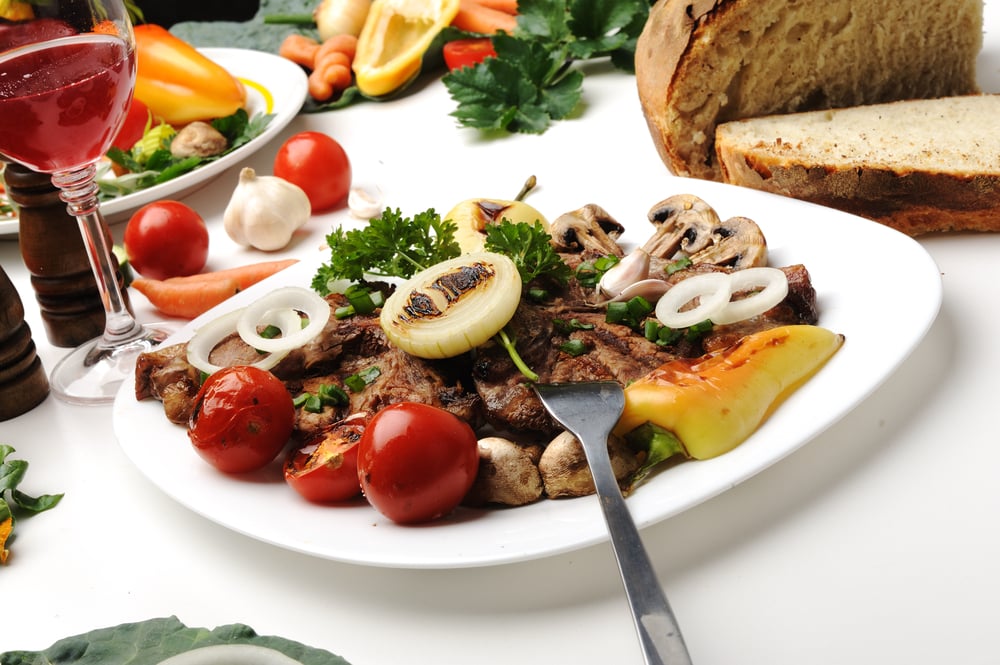We all need to eat. But the way we produce and consume food is putting an impossible strain on the planet, while many are still going hungry. And with the world’s population set to grow from 7 billion today to more than 9 billion by 2050, it’s clear that our food system needs to change – urgently.
The good news is that there are huge opportunities to feed the world in a way that works with nature, not against it. Do things differently and we can stop forests turning into fields, keep rivers flowing, restore soil fertility and reverse the loss of life on Earth – all the while ensuring there’s enough nutritious food for every person, now and in the future.
Food production is the single biggest threat to nature today.
We need to feed our growing global population. But the way we are doing this right now threatens all our futures.
A third of all land is already used for crops and livestock. And yet, food production continues to be the main cause of deforestation and other habitat loss. This growing demand for food and continued stripping away of our environment is destabilizing many natural systems we rely on for our well-being and survival.
The warning signs are clear: extreme temperatures and erratic rainfall brought on by climate change, water scarcity, collapsed fish stocks, exhausted and eroded soils, alarming declines in pollinating insects. If these environmental crises continue, it will become impossible to feed a growing global population.

By improving production efficiency and strengthening underperforming farmland, we can safeguard forests and grasslands and reduce the impact on rivers – helping to restore wildlife populations and protect the livelihoods of many millions of people. Better production systems can also keep nature healthy in other ways – for example, making sure soils are healthy, and naturally regenerating land rather than simply extracting from it.
If we shift to diets with food that is good for people and planet, and make sure food is distributed more fairly and efficiently, we can feed everyone without destroying yet more nature. We can also improve public health by addressing both malnourishment and overeating.
In addition to protecting nature and feeding people, these changes to our food system we can make a real difference to efforts to tackle the ongoing climate change crisis and so help protect life on our planet for generations to come.
Donate to WWF today and help support our vital work
Donate
With so much information and advice out there on how to change your diet to one that's more sustainable, it can often be difficult to know where to start.
Luckily we've got you covered!
Got 5 minutes?
Discover the top 4 changes you can make to make your diet better for both you and the planet!
Got 10 minutes?
Build your own personalized Planet-based Diet. Healthier you, healthier planet 😉
Got 30 minutes?
Visit our Save 1/3 website and find out more about the huge problem of food waste and how to tackle it.
Got 5 weeks?
Take our Zero to Food Hero 5-week challenge! Scroll down below to find out more! 👇
"The good news is we can feed the world without destroying more forests, rivers and oceans."
João Campari, WWF Food Team Leader
Subscribe now to embark on a 5-week journey that will empower you with simple yet impactful tips and lifestyle changes you can make to become more food-friendly for our planet. Every action adds up, no matter where you are - and you too can go from Zero to Food Hero today!
We are working with producers to improve how food is grown and farmed.
We are urging consumers and the food supply chain to ensure food goes in our bodies and not in the bin.
We are encouraging people to adopt diets that are healthier for people and planet.
Our experts from around the world work together to tackle the global food crisis. Leading the team – called the WWF Food Practice – is João Campari, who, in roles ranging from working in his home country Brazil’s Ministry of Environment to international agencies such as the World Bank, has sought to balance agricultural production and food systems with conservation.
João Campari, Food Practice Leader
Our goal is to create sustainable food systems that ensure food security and protect nature, now and in the future.

© 2017 WWF - World Wide Fund For Nature© 1986 Panda Symbol WWF – World Wide Fund For Nature (formerly World Wildlife Fund)® “WWF” is a WWF Registered Trademark Creative Commons license.